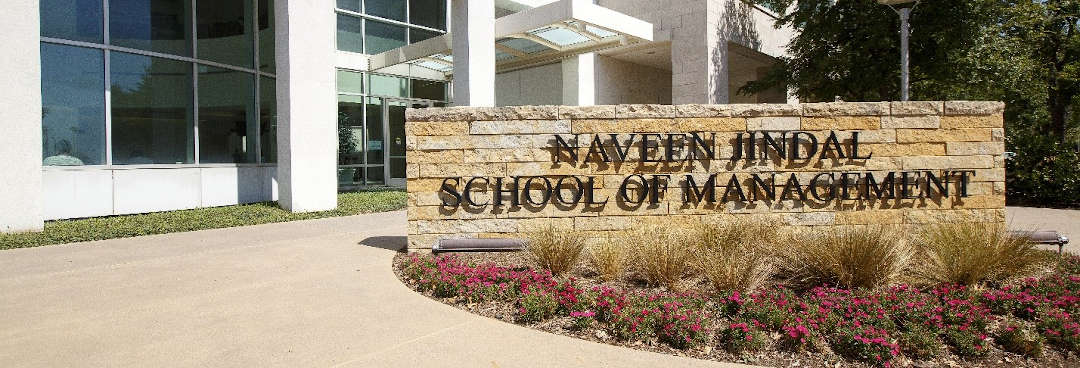
Bloomberg Businessweek’s 2025-26 Best B-Schools rankings are in, and the Naveen Jindal School of Management’s Full-Time MBA program has surged upward, now ranking No. 12 among public universities and 32nd overall.
Among U.S. public university programs, the ranking, released Sept. 16, shows that the Jindal School’s MBA moved up eight places among publics and 14 spots among all schools from last year.

“Our rise in the rankings reflects our commitment to delivering exceptional learning, professional development and networking experiences that drive long-term career success,” said Dr. Mark Thouin, associate dean for graduate programs at the Jindal School.
In addition to its strong overall standing, the program earned national recognition in key indexes that reflect its strengths. It was ranked No. 12 in the U.S. for Learning, up three from 2024-25. Factors that determine success in this index include the quality, depth and range of instruction; focusing on the curriculum relative to real-world business situations, with emphasis on innovation, problem-solving and strategic thinking; mentoring and support from instructors; class size; and collaboration.
In the inclusion index, it rocketed from No. 37 to No. 13, an indication of the gender parity designation (53% female) it earned earlier this year from Forté Foundation. Bloomberg rewards schools that recruit minority students, women and nonbinary students. Additional weight is given to underrepresented minorities.
Although not an official ranking sub-category, Bloomberg’s Business School ROI (return on investment) Calculator 2025-26 places the Jindal School at No. 9 in the U.S.

“This is great news, made even better when you realize that Bloomberg did not factor in the substantial scholarships we awarded to our current Full-Time MBA students and we still ranked No. 9 in ROI,” said Lisa Shatz, senior assistant dean and director of the Jindal School’s MBA programs. “In the most recent class, 100% of students received scholarships averaging $22,000. Given our price point of $36,000, this means our typical student gets this degree for around $14,000, significantly increasing the overall return on investment.
“We take pride in offering our students a powerful combination of a low cost of attendance and exceptional employment outcomes, ensuring they maximize the value of their MBA experience,” Shatz continued. “Our program draws great students every year who are drawn to the combination of top research faculty, a city that is regularly ranked the top business environment in the country and an alumni community that is dedicated to bringing opportunities to our current students.”





